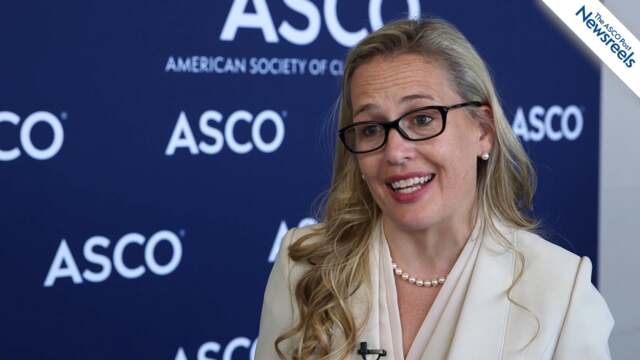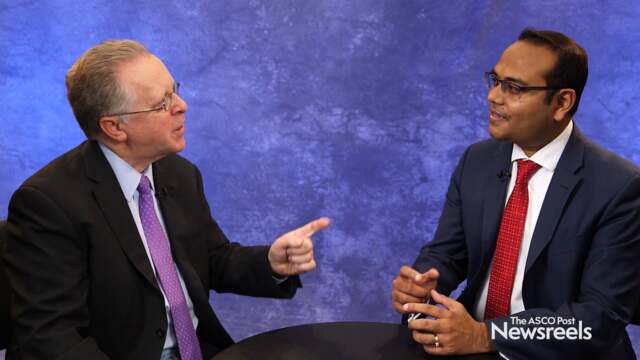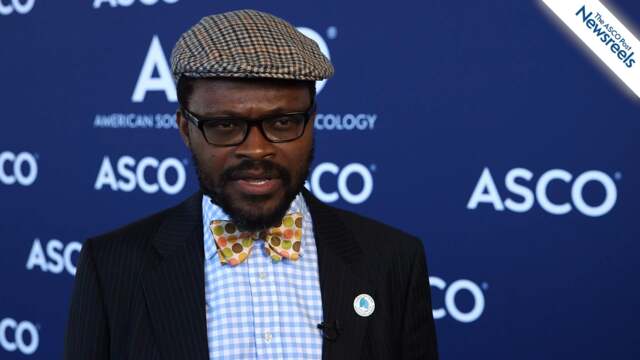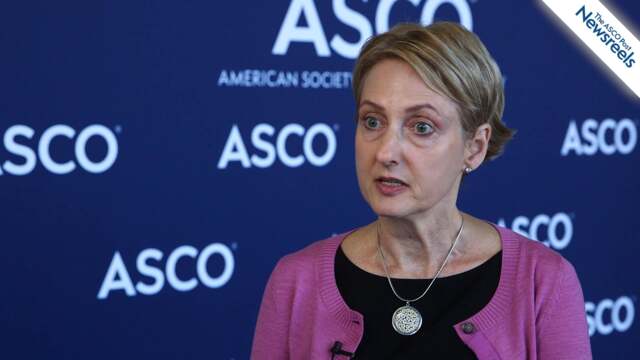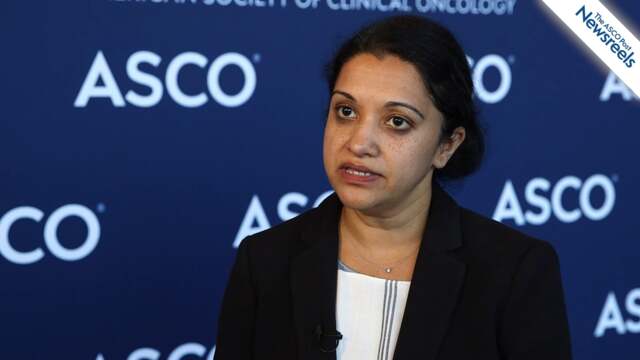Tony Mok, MD, on NSCLC: Results From the ARCHER 1050 Trial
2018 ASCO Annual Meeting
Tony Mok, MD, of the Chinese University of Hong Kong, discusses study findings on dacomitinib vs gefitinib for first-line treatment of advanced non–small cell lung cancer, a final overall survival analysis.
Rebecca A. Dent, MD, of the National Cancer Centre Singapore, discusses phase II study findings on first-line ipatasertib plus paclitaxel for locally advanced/metastatic triple-negative breast cancer (Abstract 1008).
Andrew D. Seidman, MD, of Memorial Sloan Kettering Cancer Center, and Aditya Bardia, MD, MPH, of Massachusetts General Hospital, discuss the efficacy of sacituzumab govitecan for treatment-refractory hormone receptor–positive/HER2-negative metastatic breast cancer (Abstract 1004).
Raymond U. Osarogiagbon, MBBS, of Baptist Cancer Center, discusses a kit used in non–small cell lung cancer resection that improves staging quality and overall survival without adding to morbidity of curative surgery (Abstract 8502).
Laurie Helen Sehn, MD, MPH, of the British Columbia Cancer Centre for Lymphoid Cancer, discusses phase II study findings on polatuzumab vedotin with bendamustine and rituximab in relapsed or refractory follicular lymphoma and diffuse large B-cell lymphoma (Abstract 7507).
Supriya G. Mohile, MD, of the University of Rochester Medical Center, discusses study findings on ways to improve communication with older cancer patients using geriatric assessment (Abstract LBA10003).
